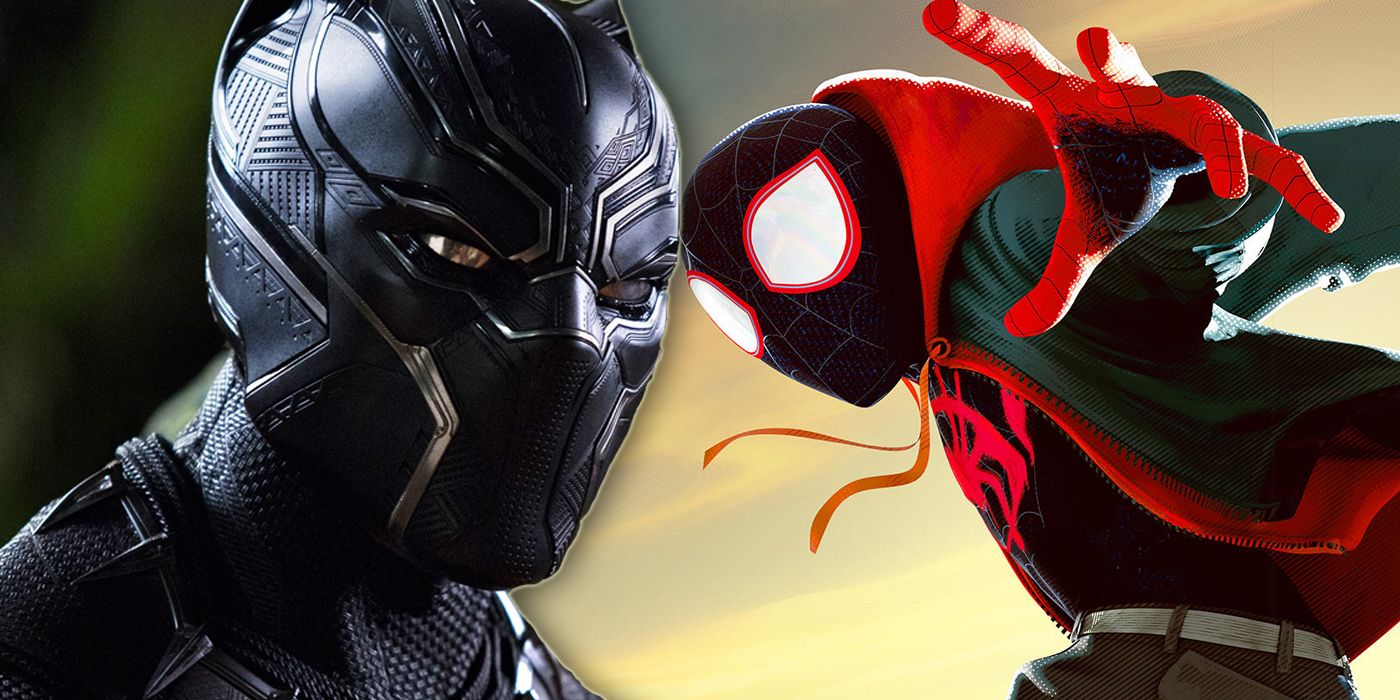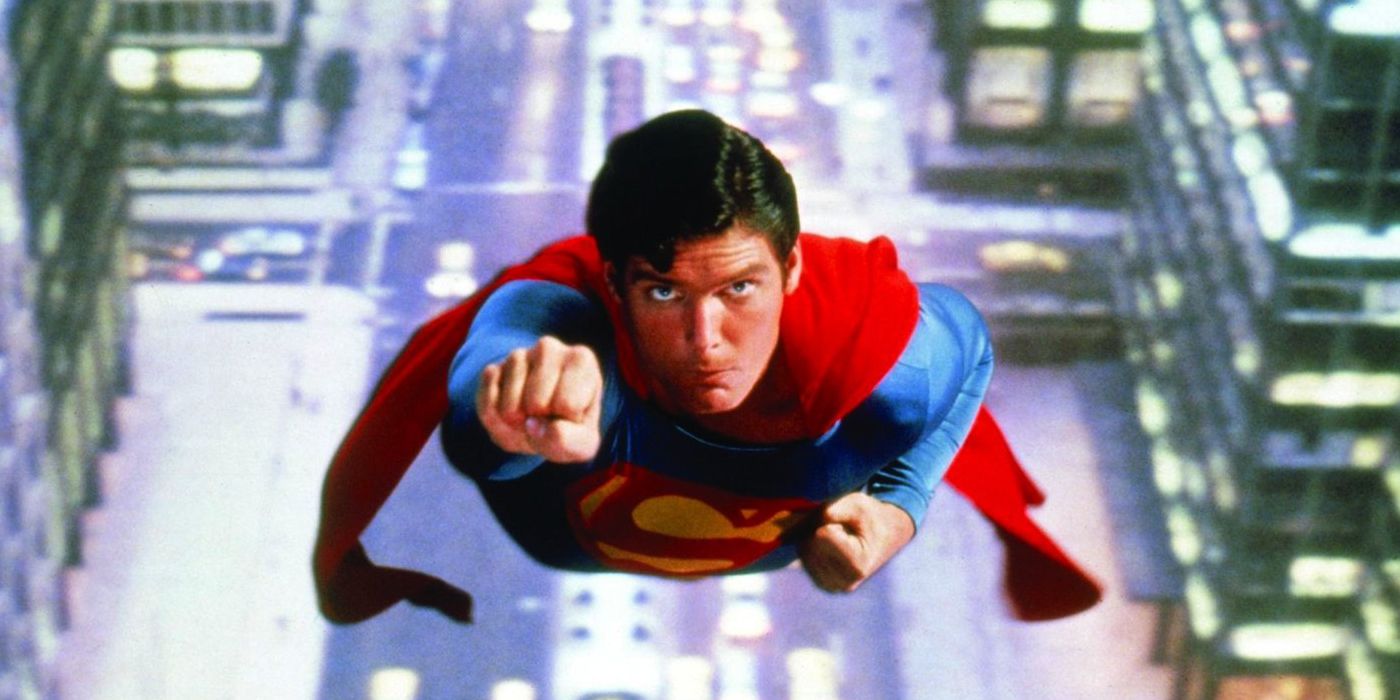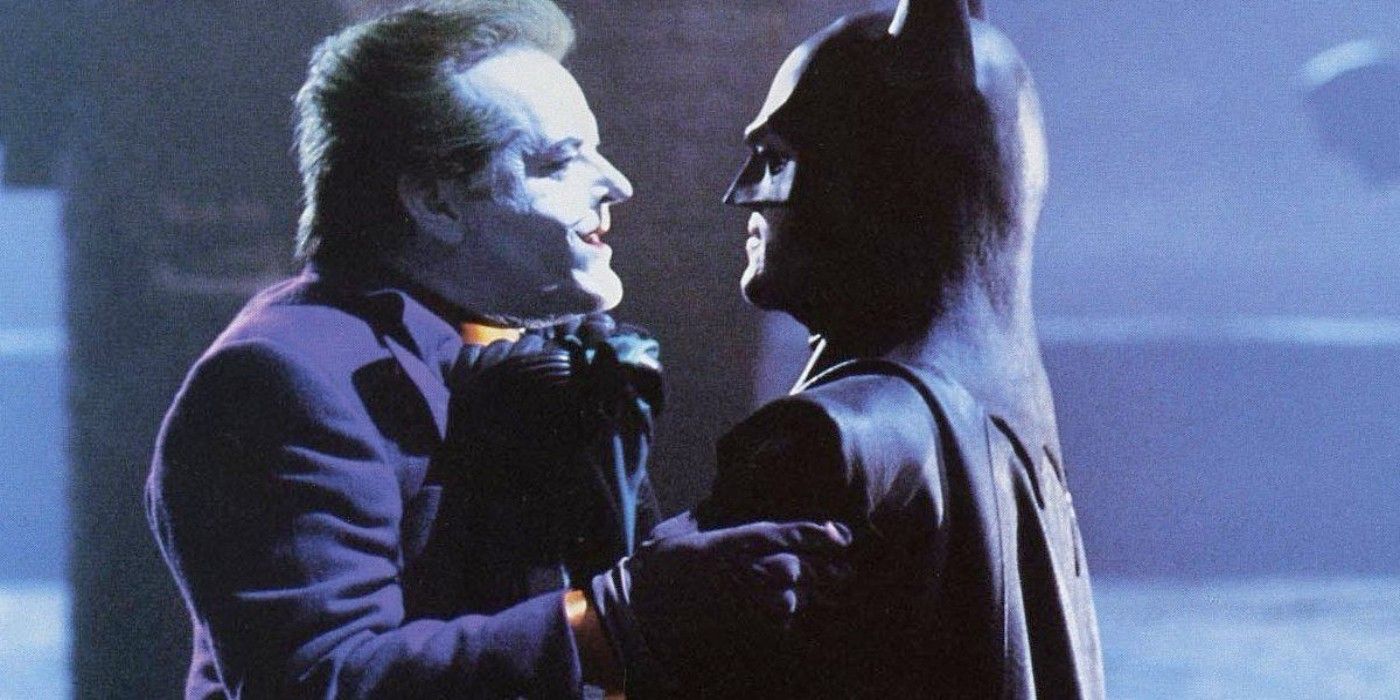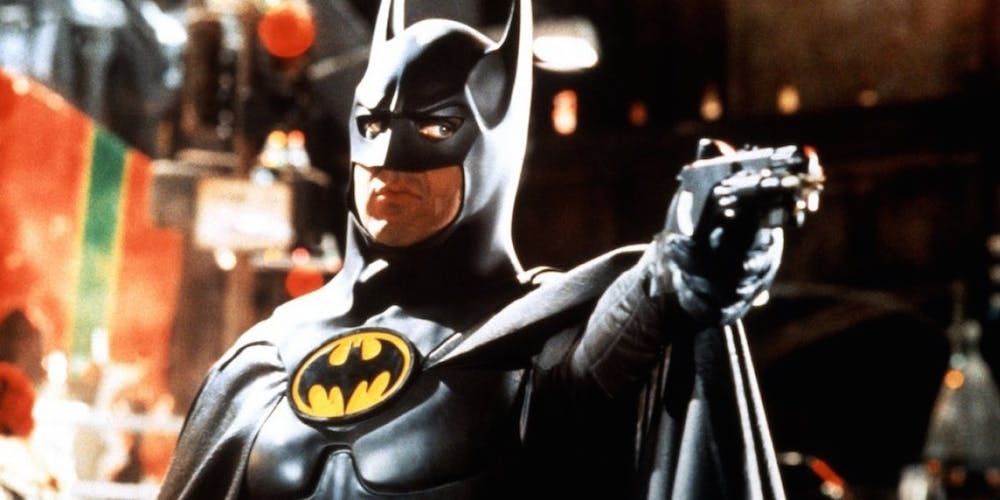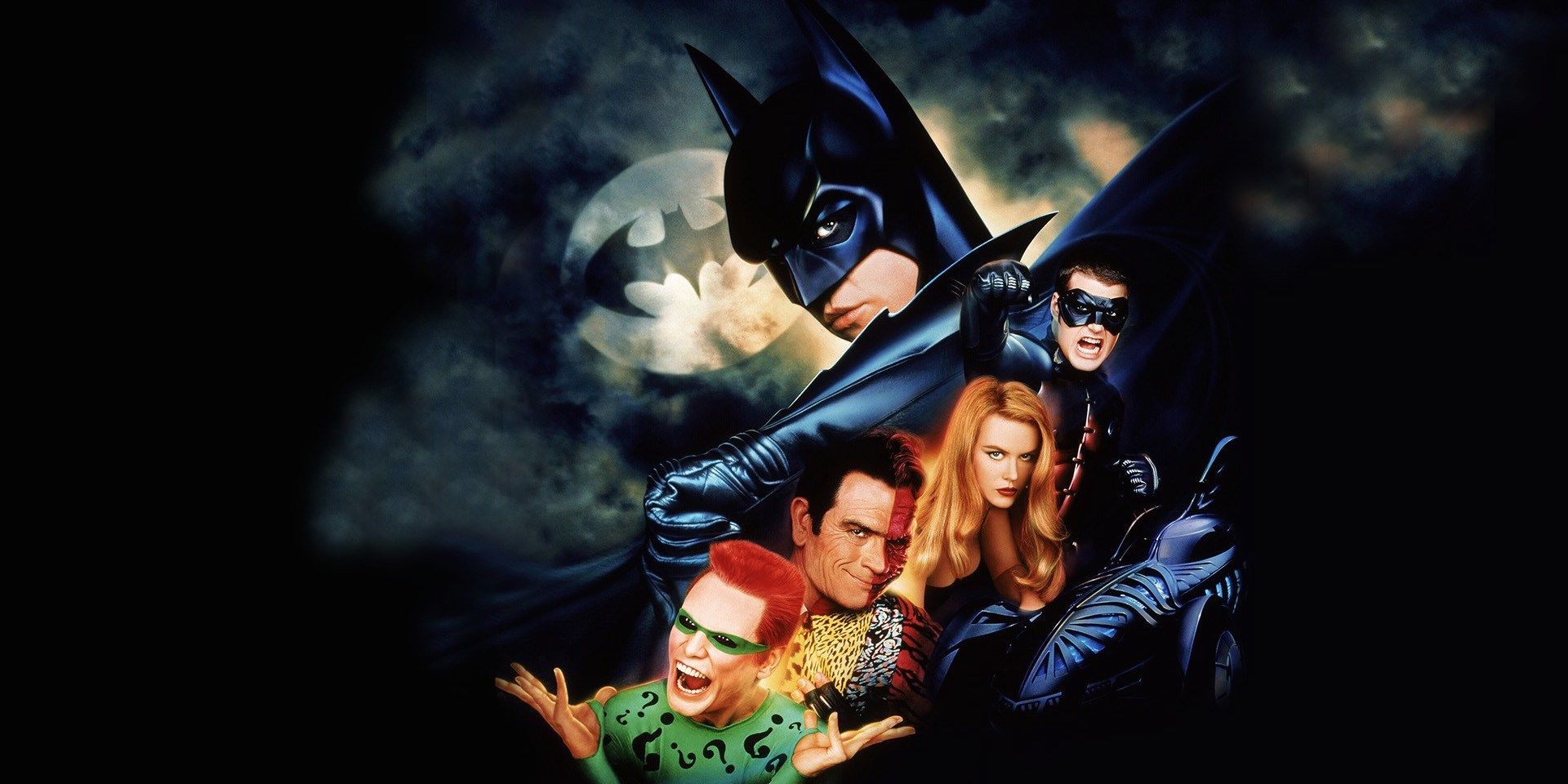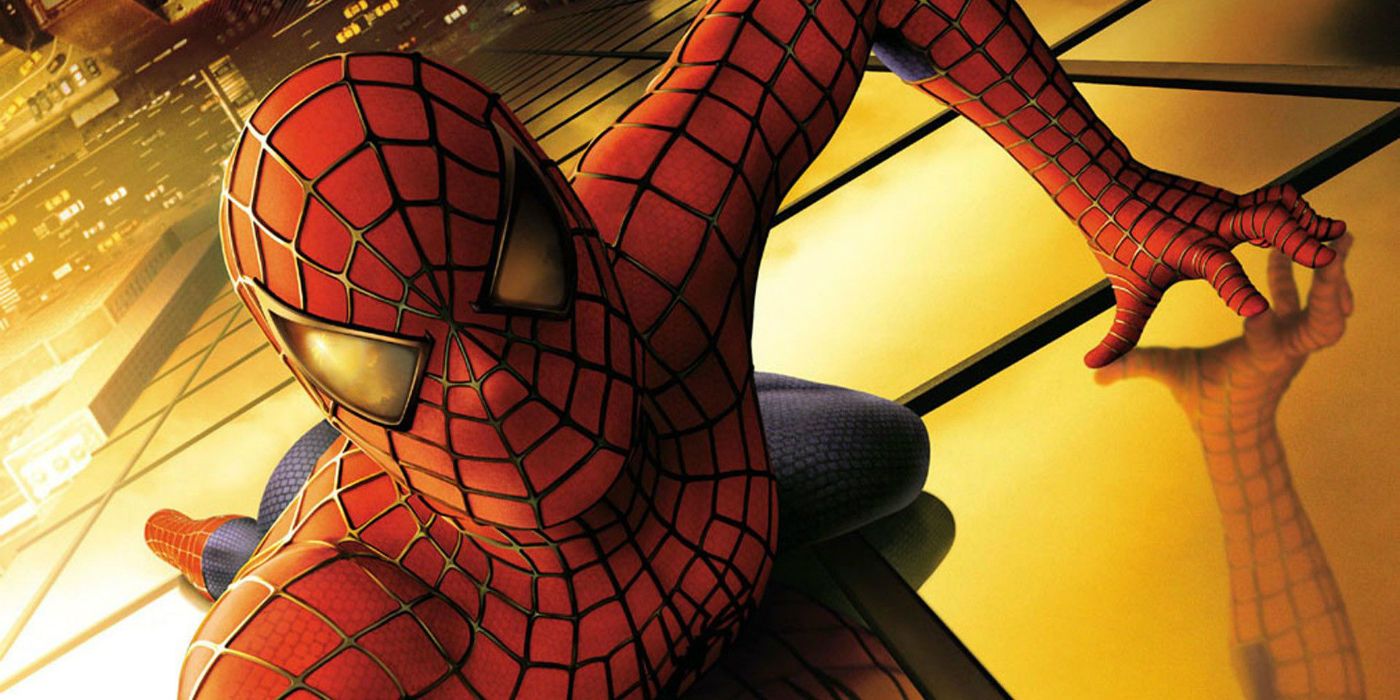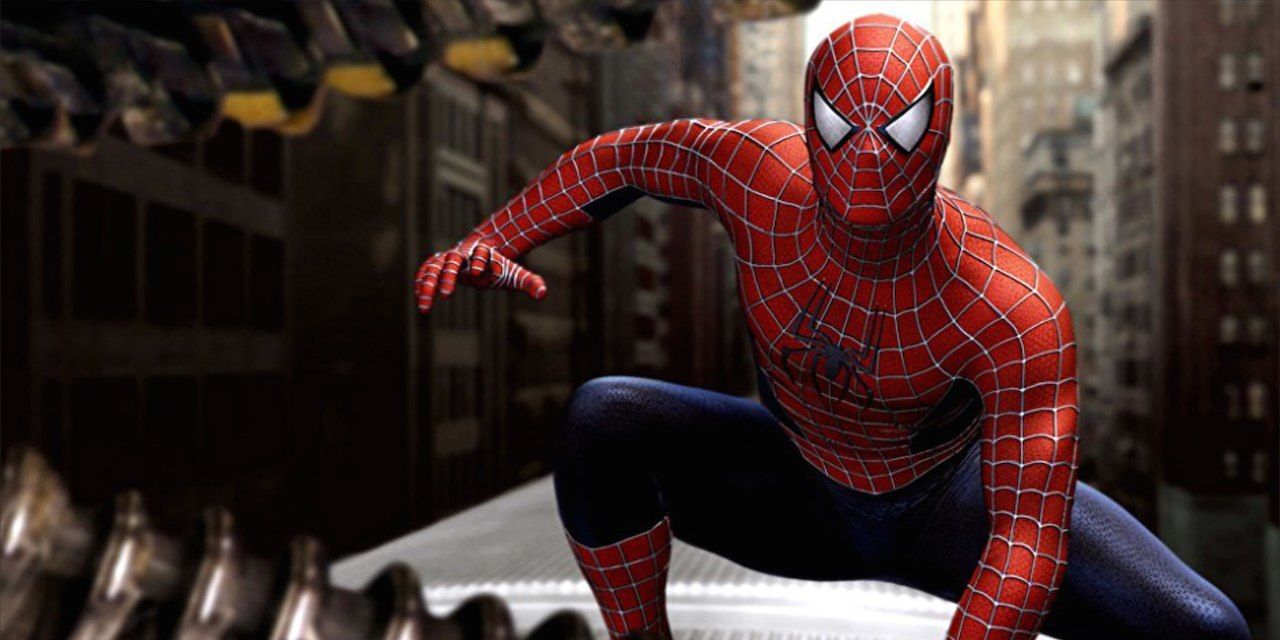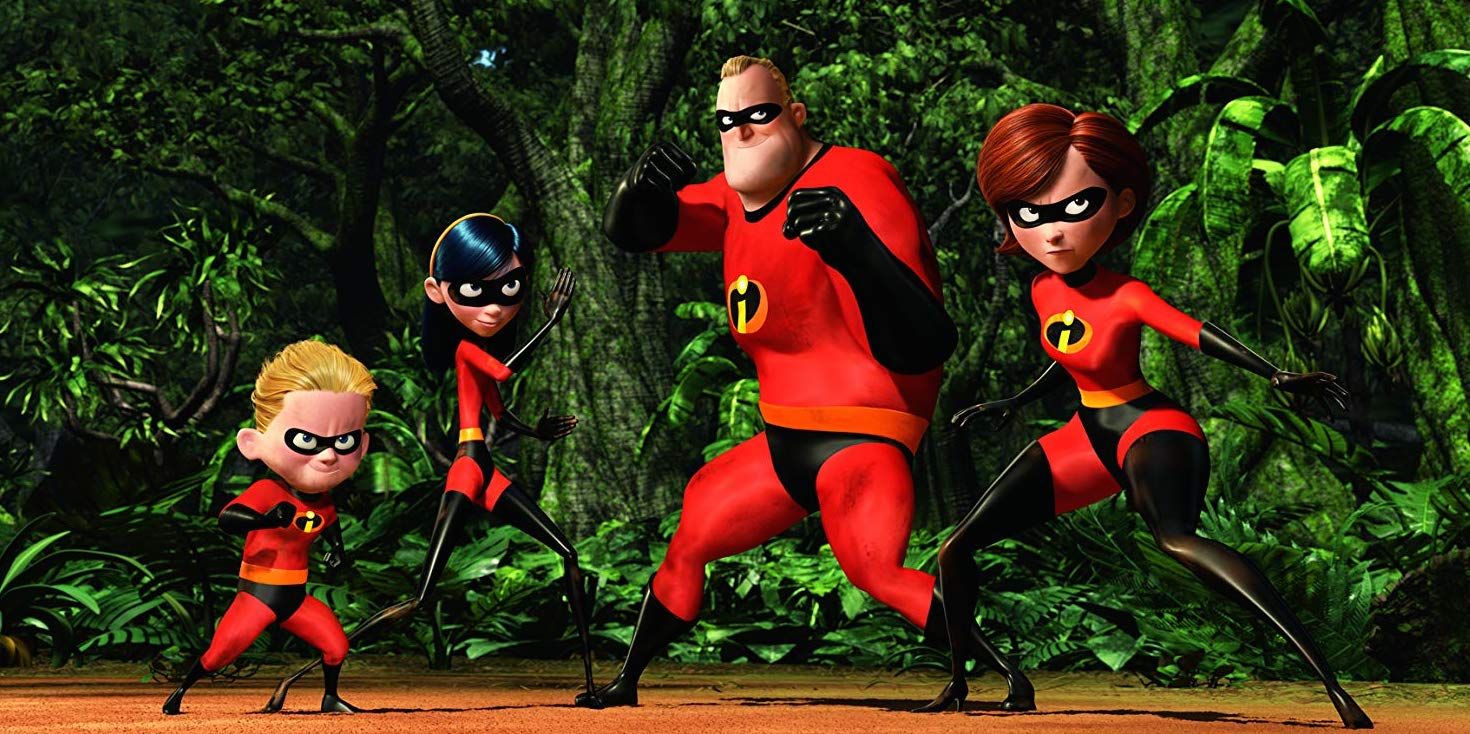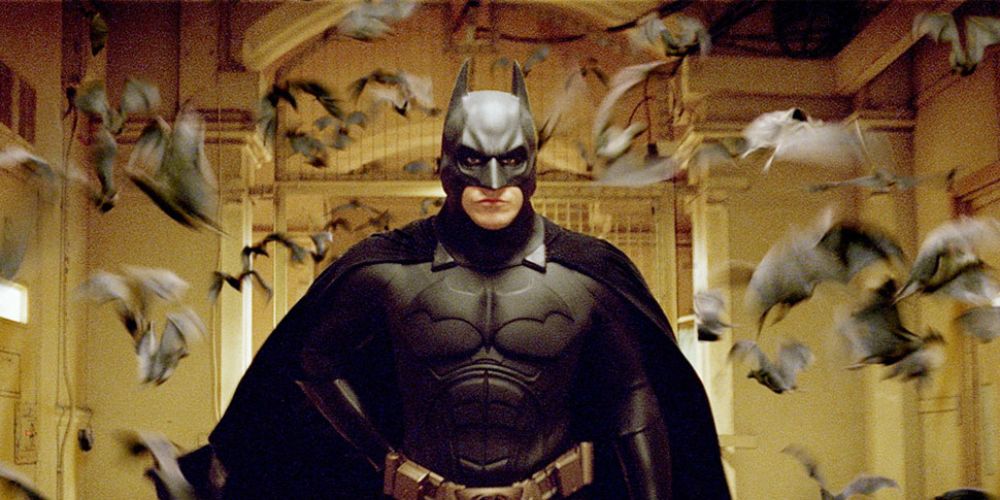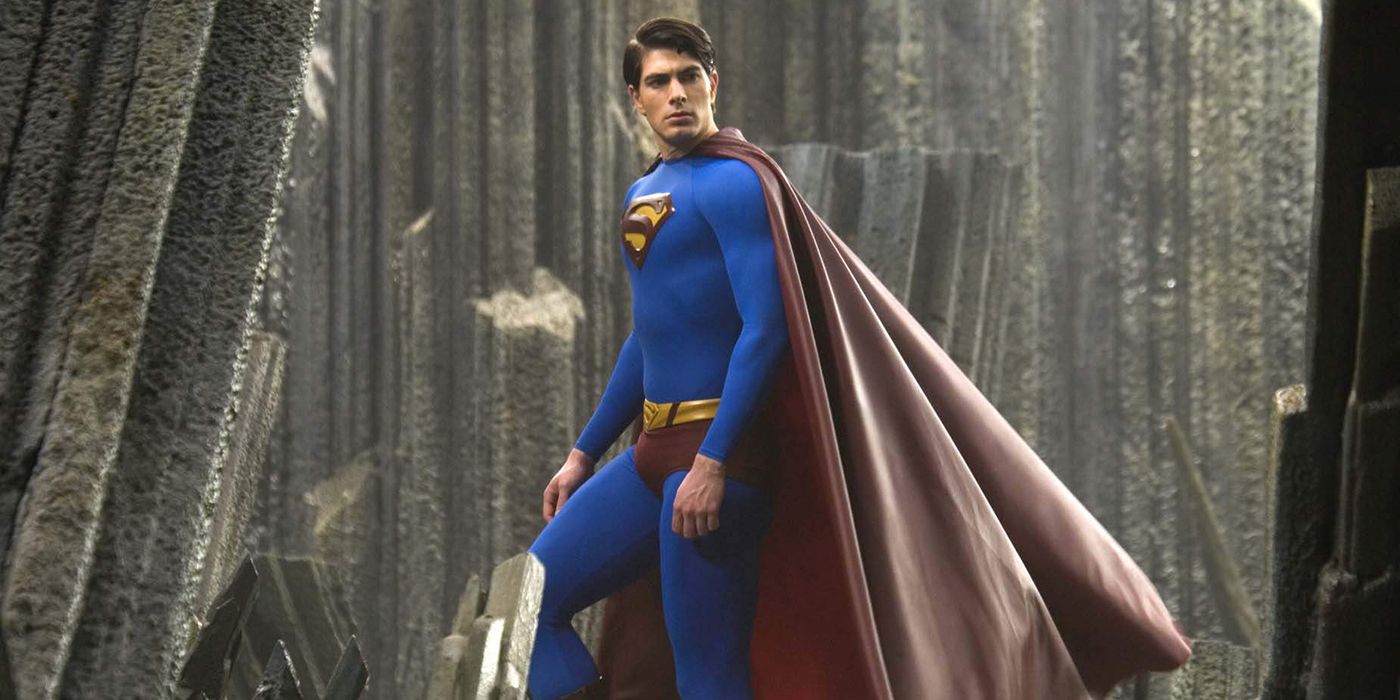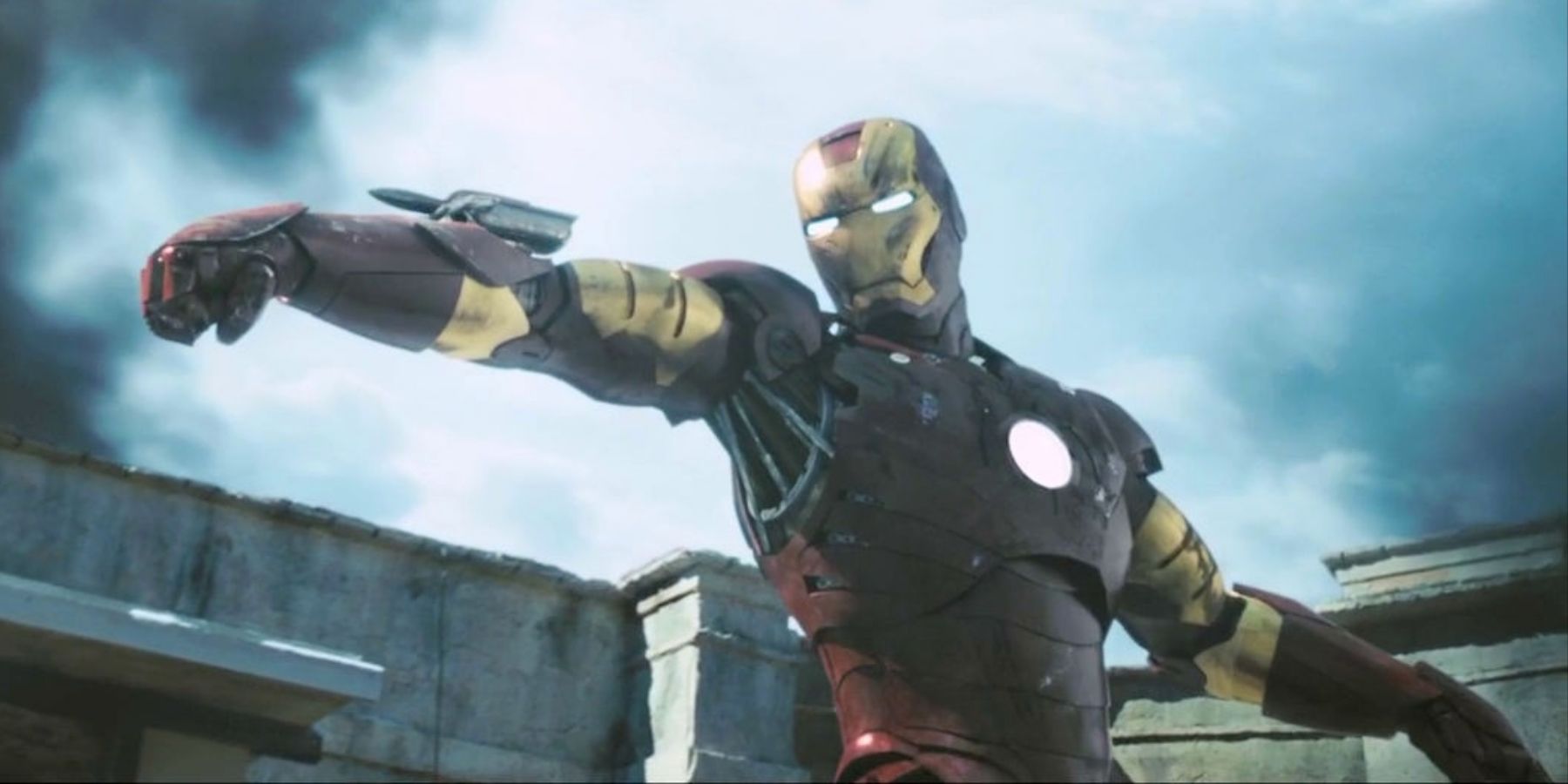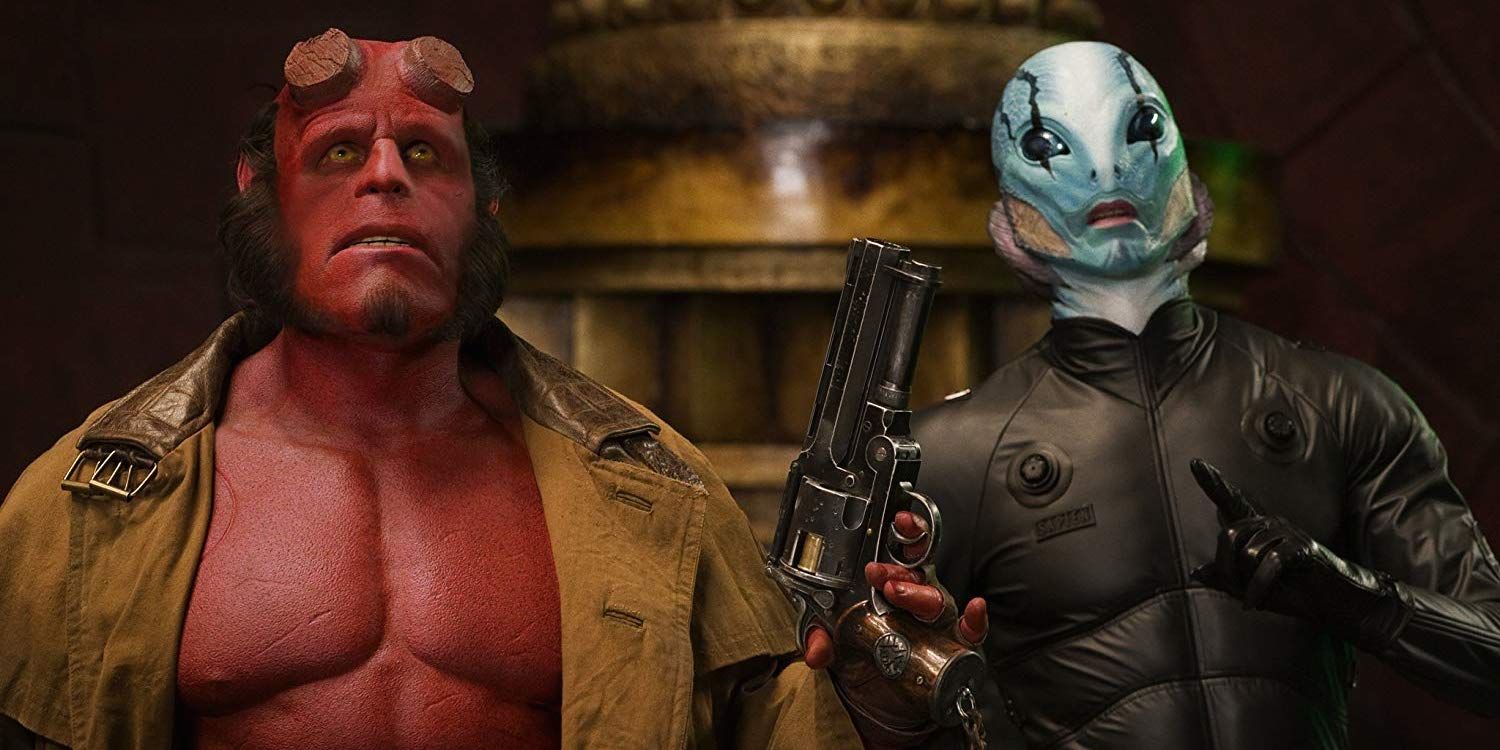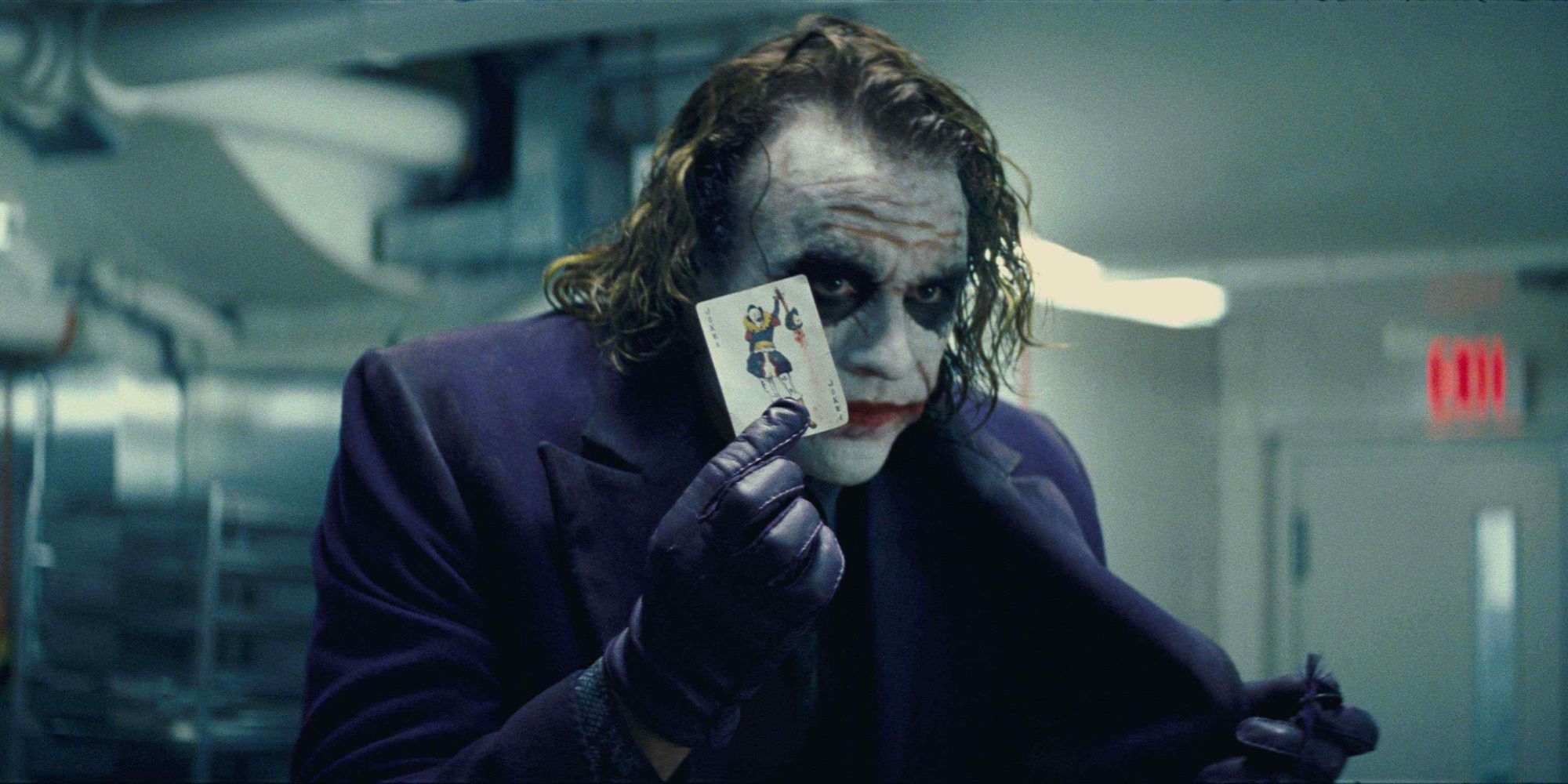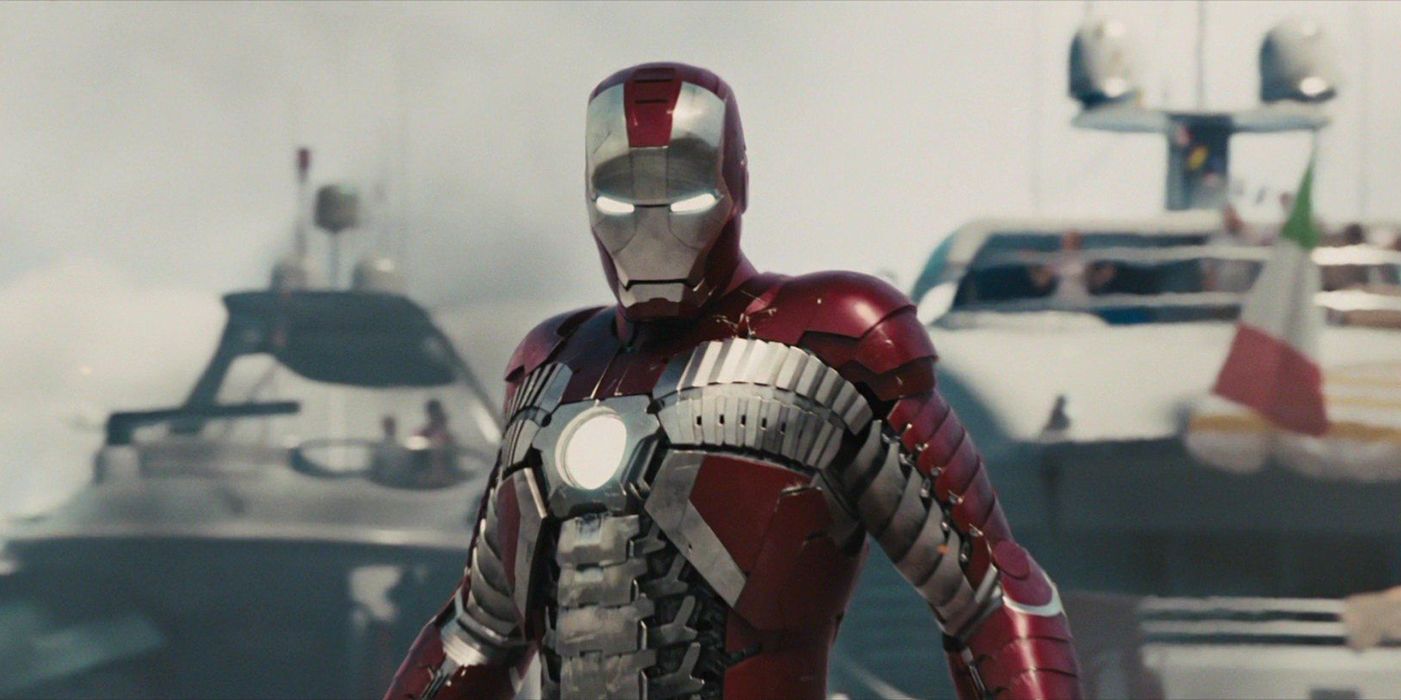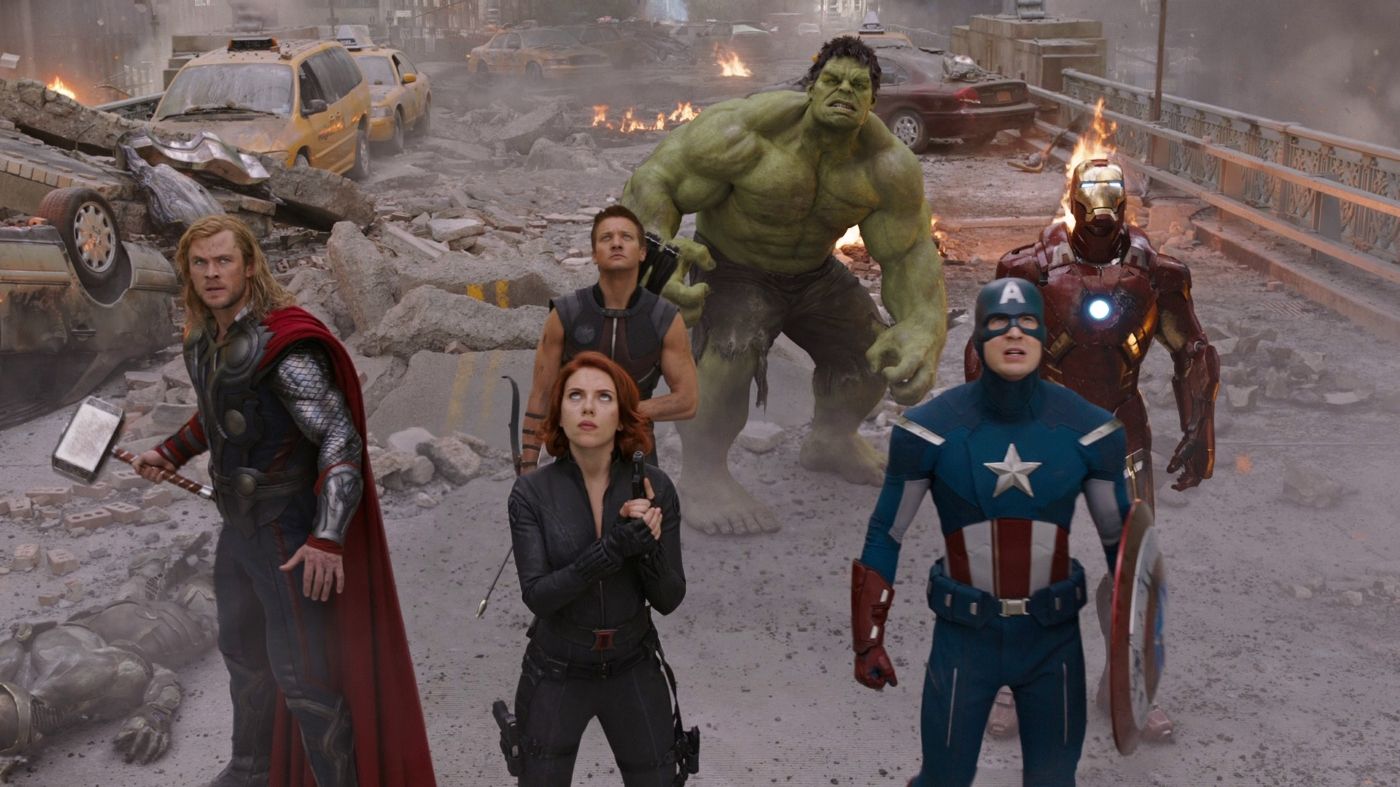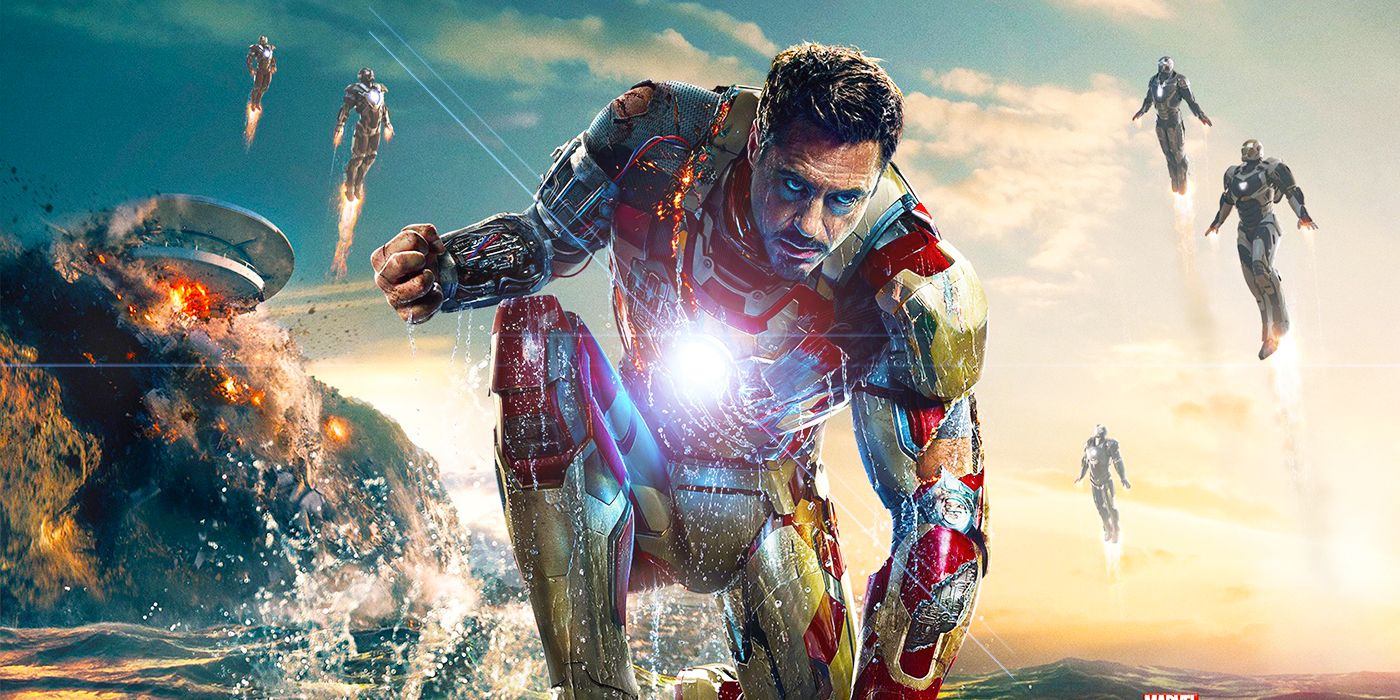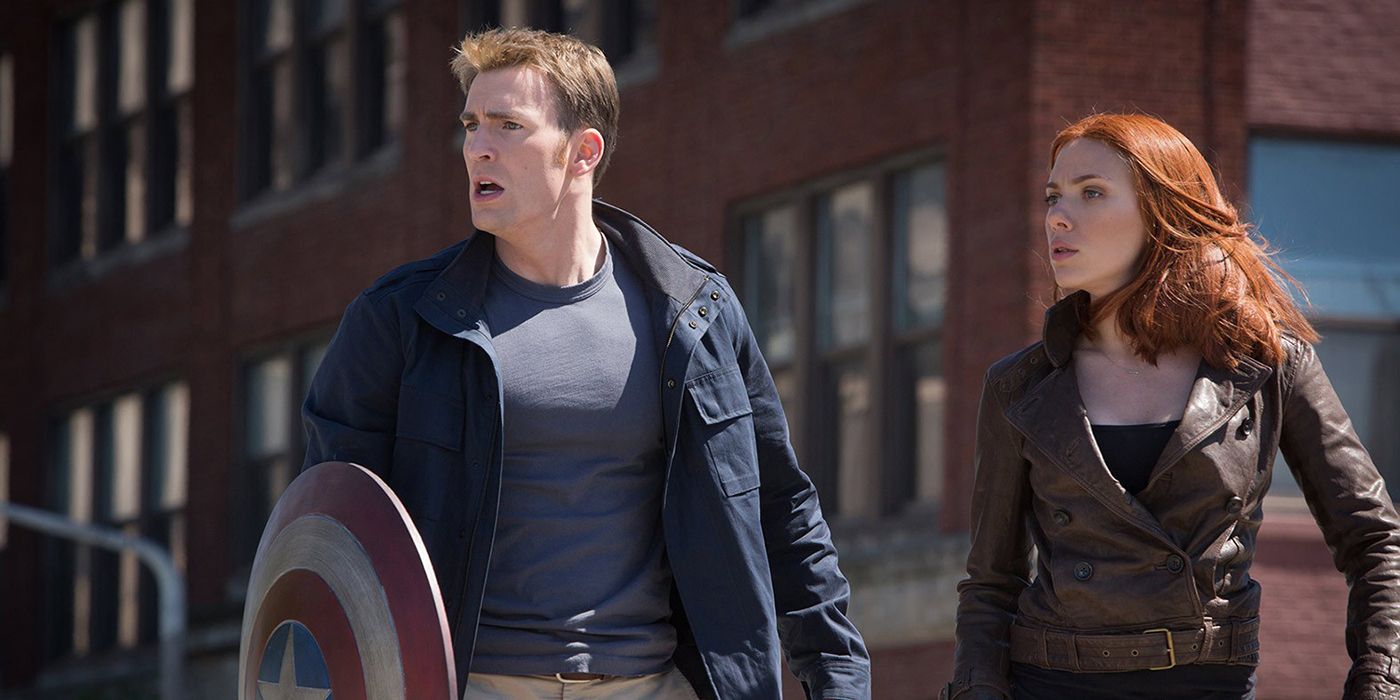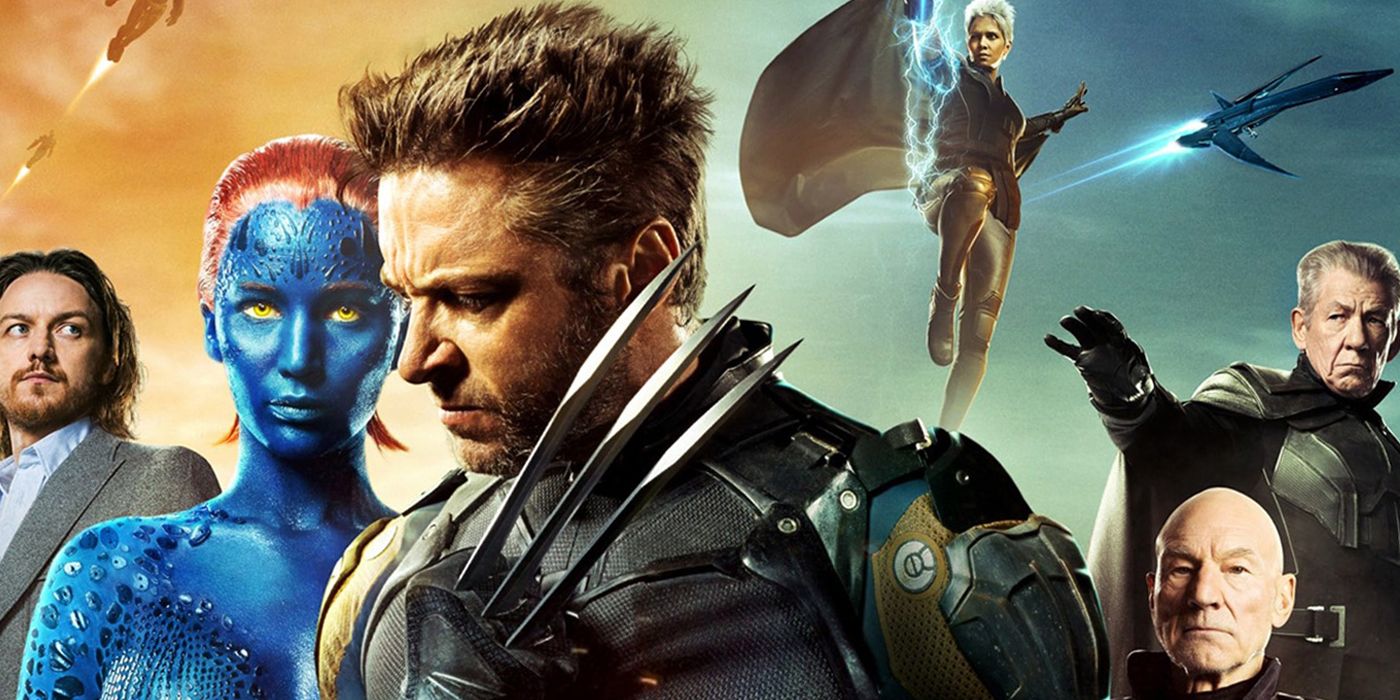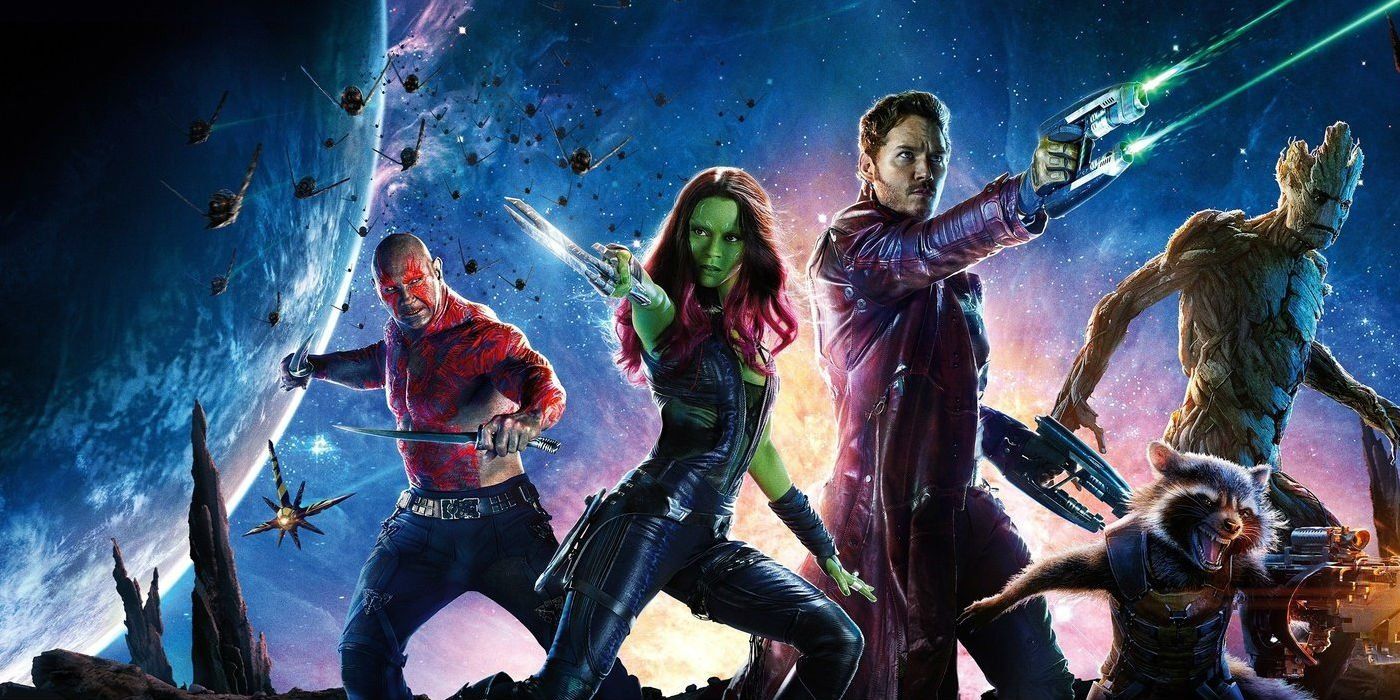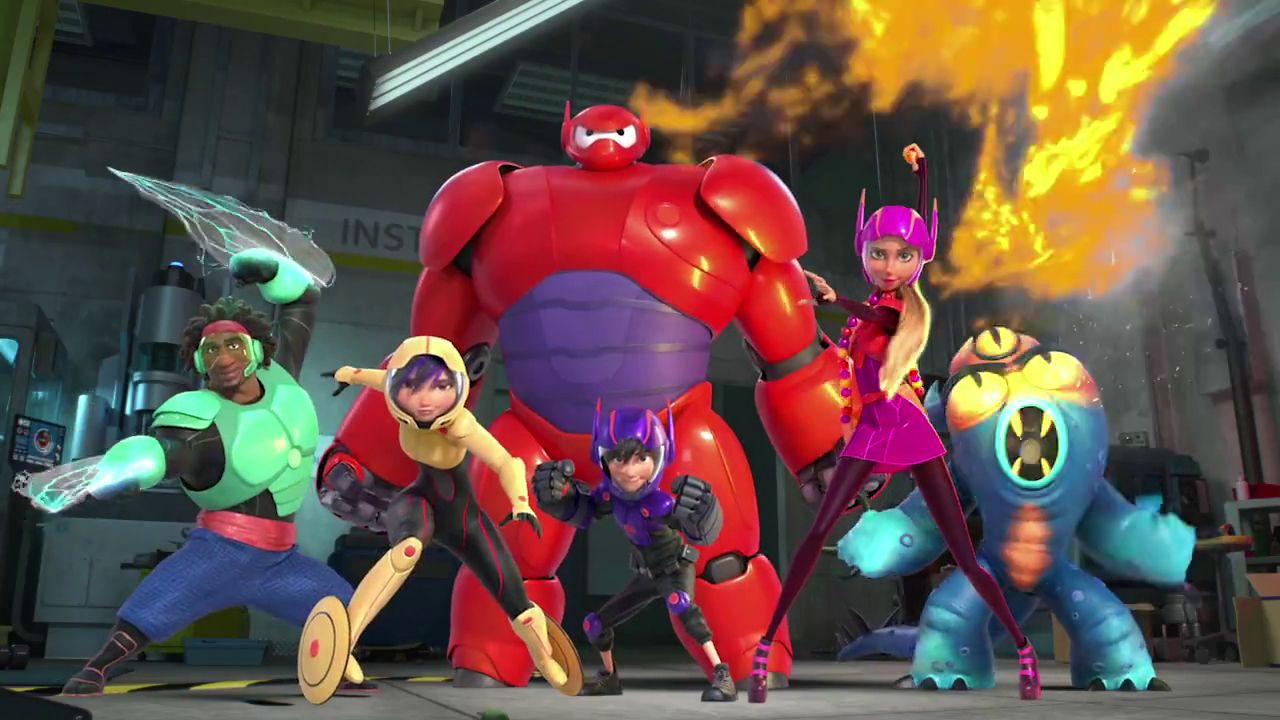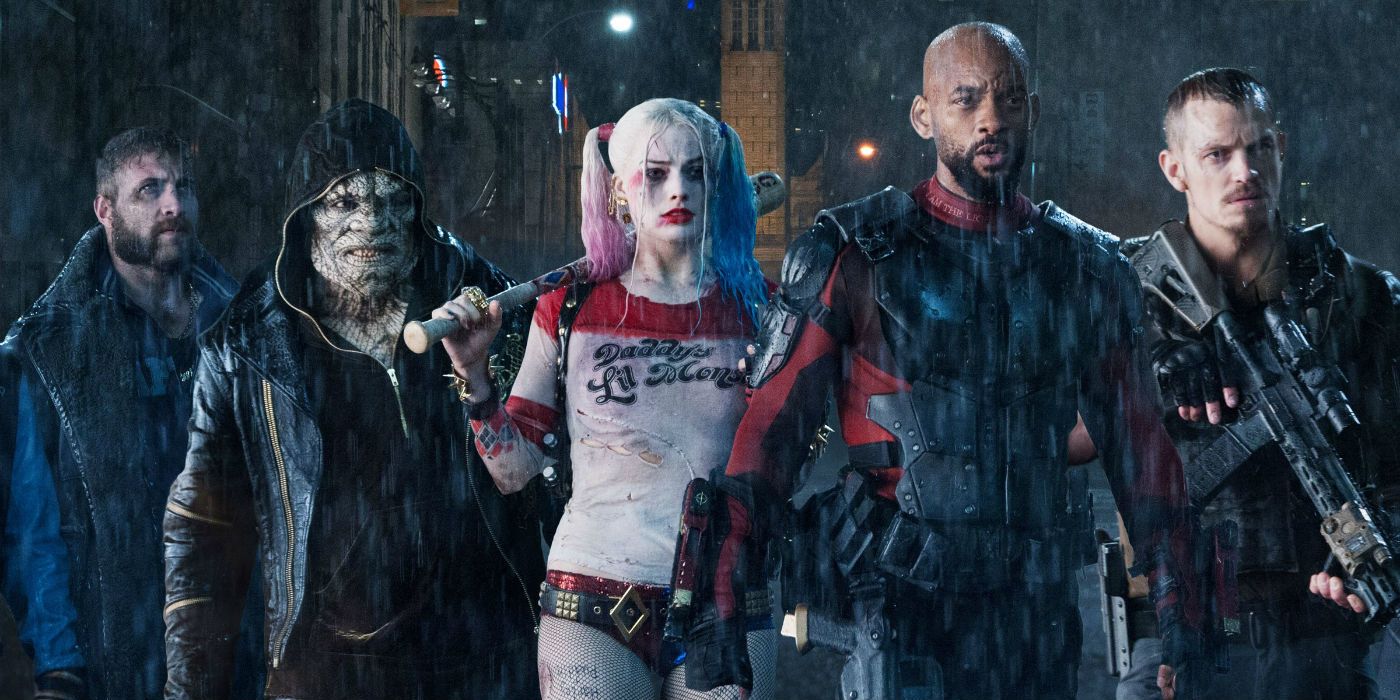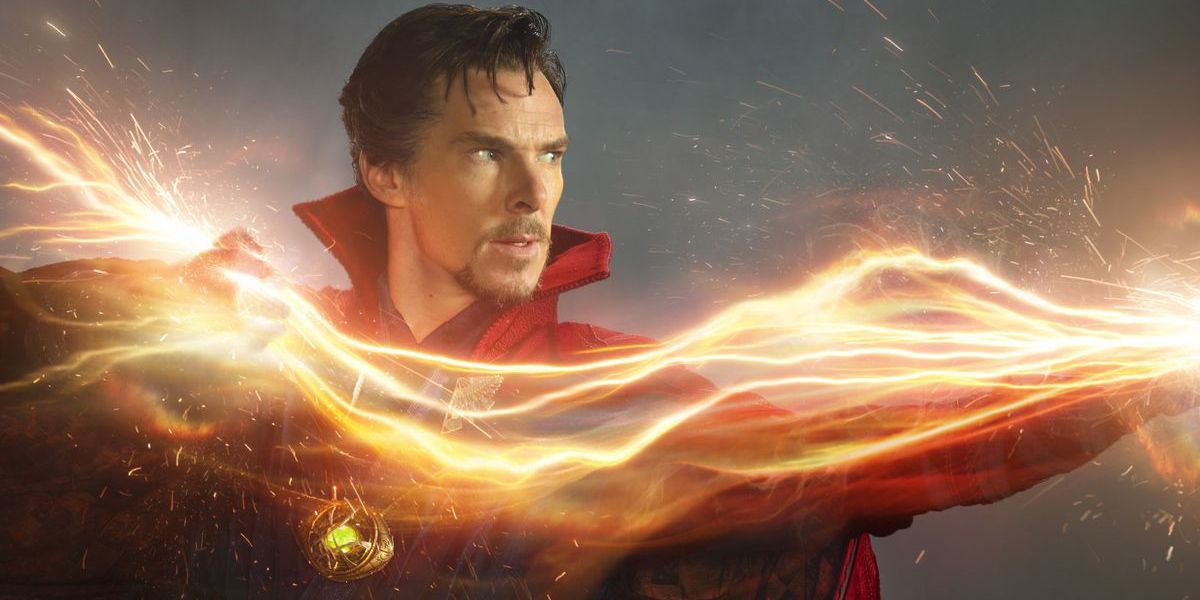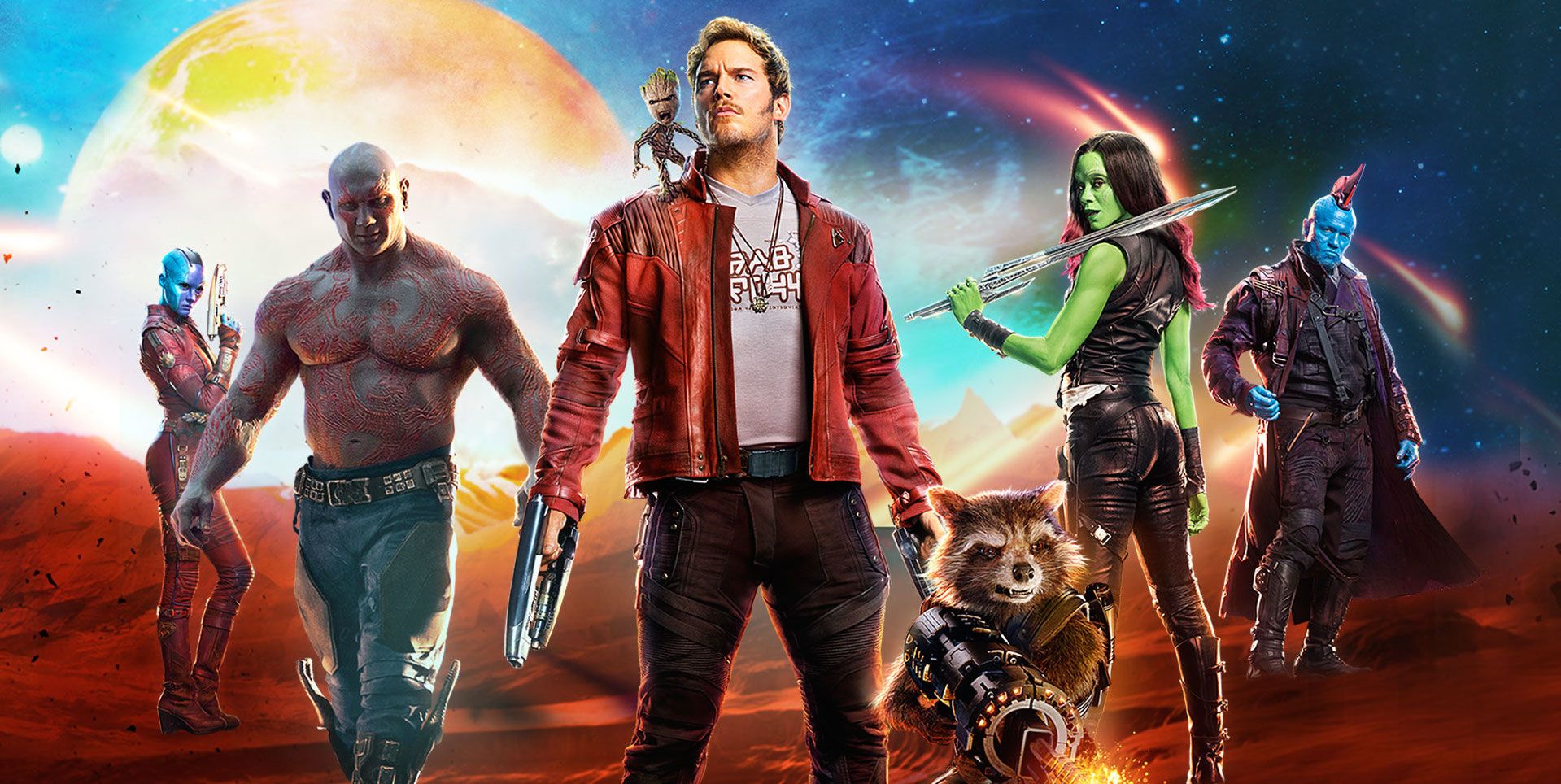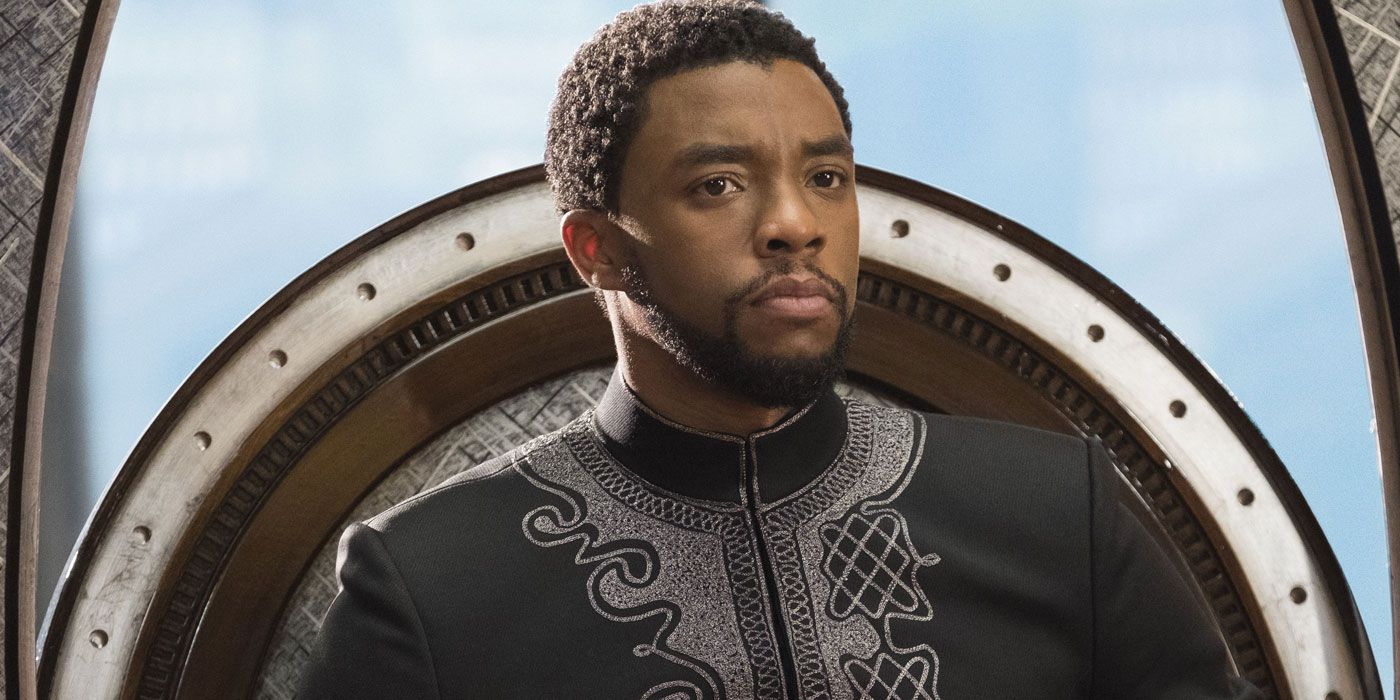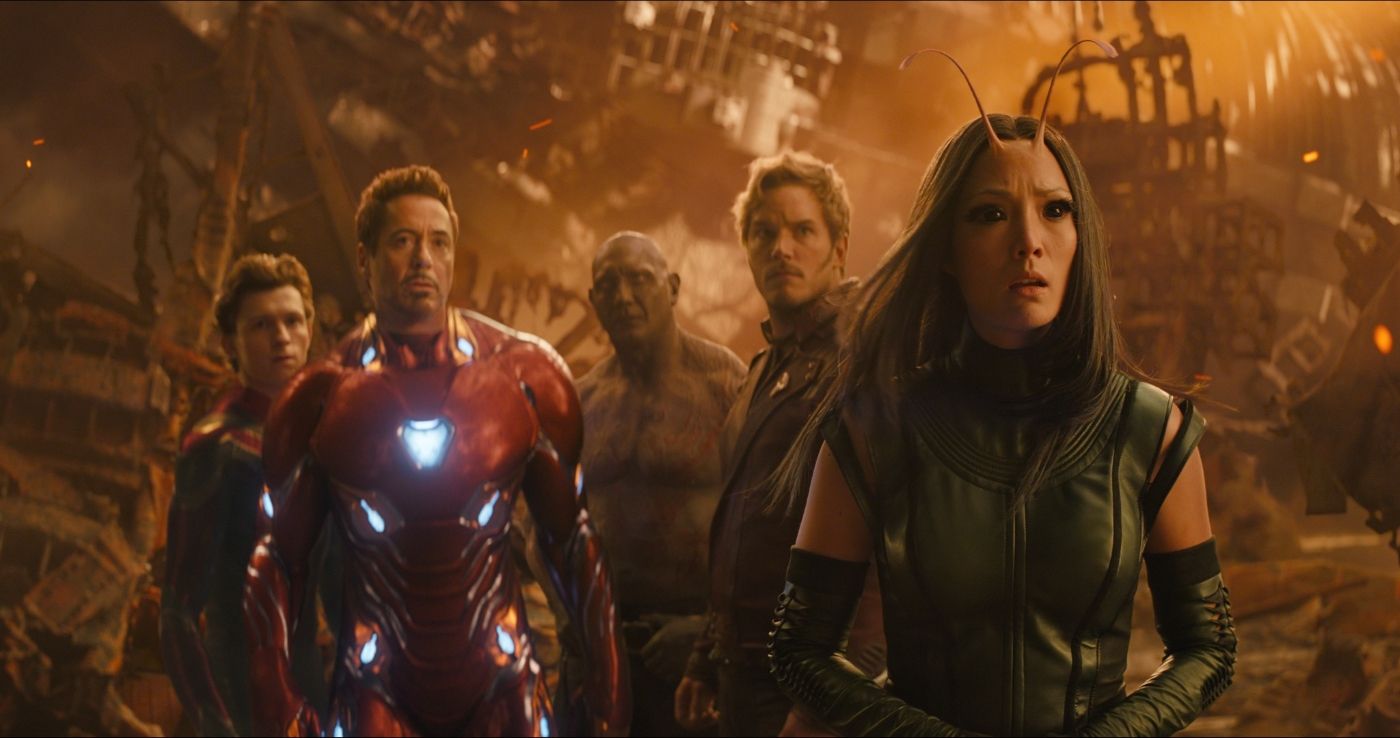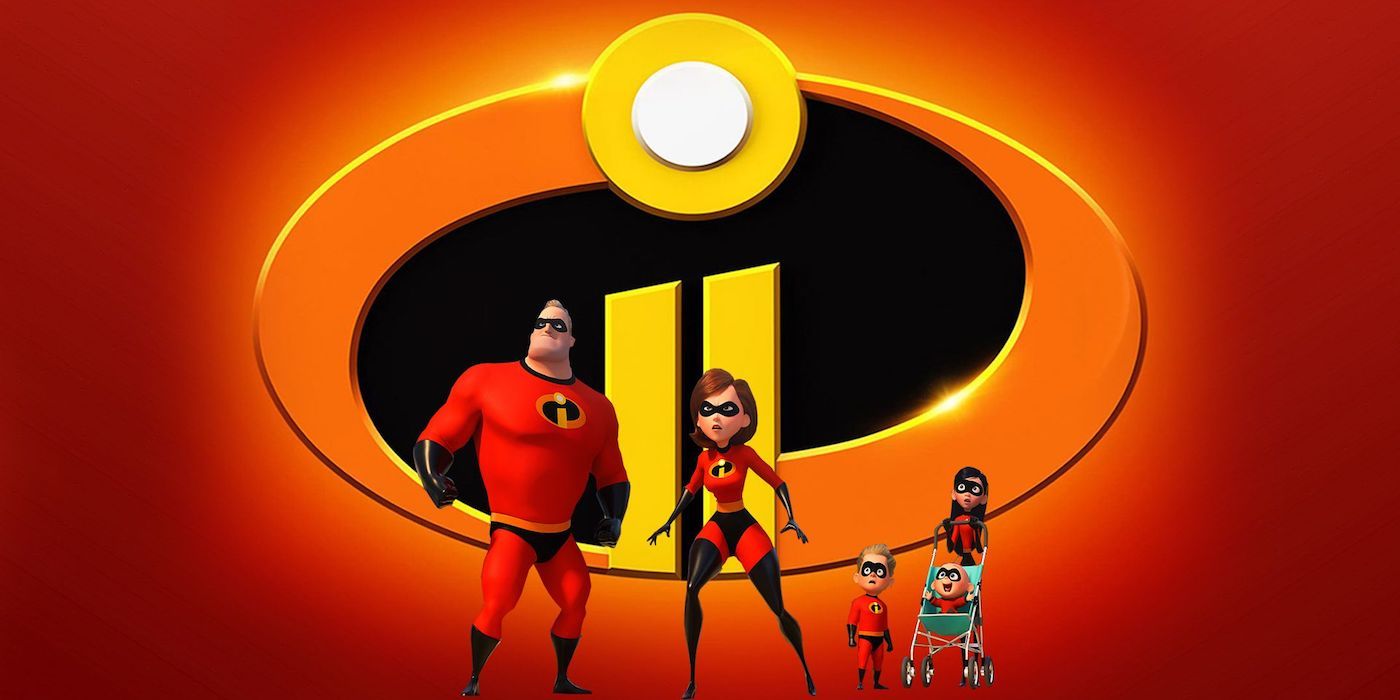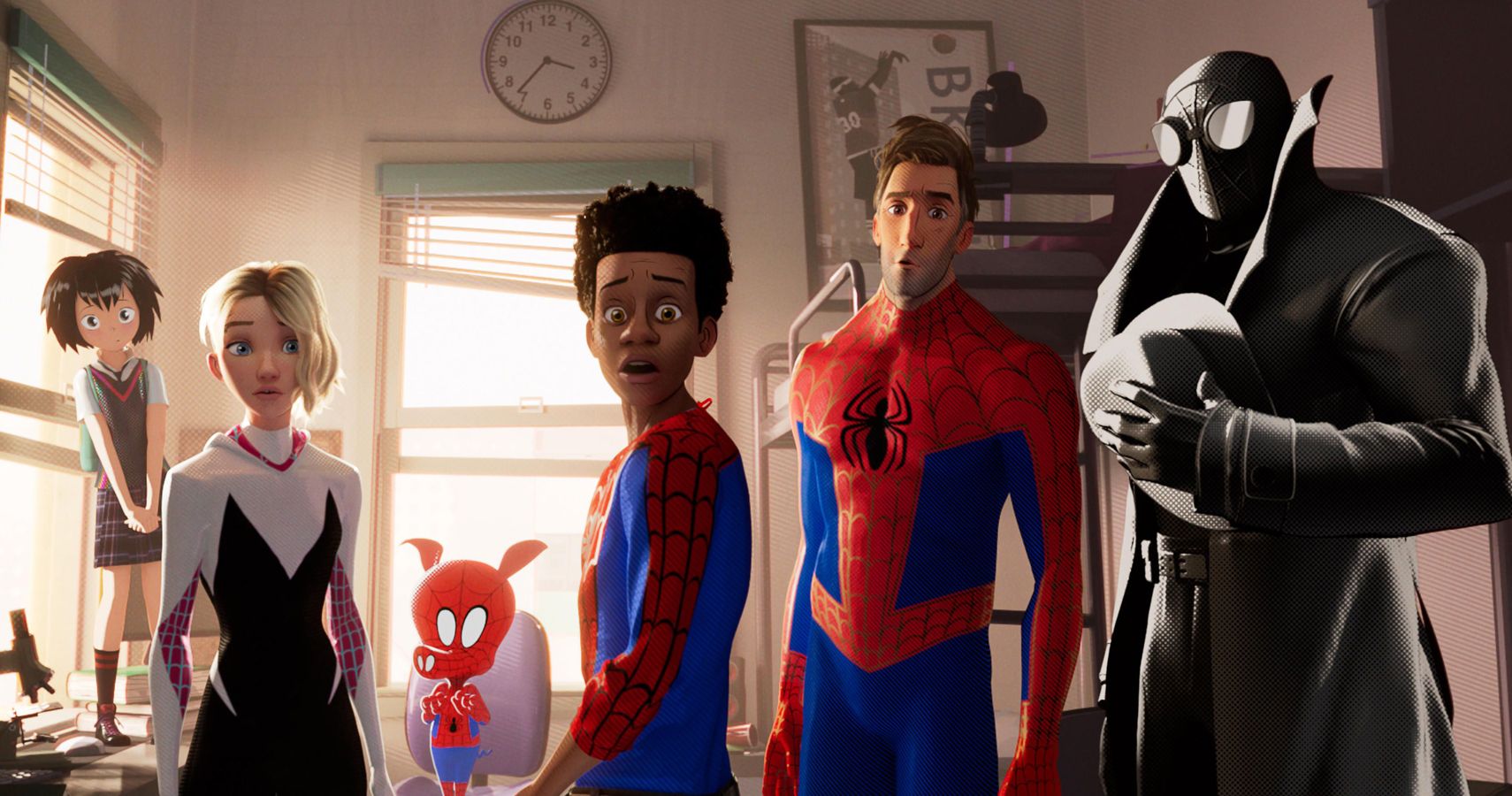Marvel's Black Panther made Hollywood history this week by becoming the first superhero film to be nominated for an Academy Award for Best Picture. Of course, it's not the only film in the subgenre reaching for Oscar gold, as both Spider-Man: Into the Spider-Verse and Incredibles 2 are in the running for Best Animated Feature, while Avengers: Infinity War is vying for Best Special Effects, familiar territory for superhero movies.
Black Panther, which received six other nominations, represents a major breakthrough for superhero adaptations, which, like so many other genre films, have largely been relegated to the technical categories.
RELATED: Into the Spider-Verse Soars, Black Panther Falls at Producers Guild Awards
With that in mind, we look back at every superhero film that's been nominated for an Academy Award.
Superman (1978)
The film that sparked Hollywood's modern love affair with superheroes, 1978's Superman also made actor Christopher Reeve an international superstar. Directed by Richard Donner, the DC Comics adaptation was the first big-budget superhero film, telling the origin of the Man of Steel, his romance with Lois Lane and his rivalry with criminal genius Lex Luthor. Its tagline famously promised, "You'll believe a man can fly," and audiences did.
For its groundbreaking special effects, Superman received a Special Achievement Award for Visual Effects at a time when the category recognized a single, specific recipient until eventually shifting to the familiar multiple-nominee format. The film also earned nominations for Best Sound, Best Film Editing, and Best Original Score for John Williams' instantly iconic themes. The Best Sound and Film Editing trophies went to the Vietnam War film The Deer Hunter, which earned the most Academy Awards that year, including Best Picture, while Best Original Score was awarded to Giorgio Moroder's score for the prison drama Midnight Express.
Batman (1989)
More than a decade after Superman opened the door for big-budget superhero films, Batman brought audiences back to the cinemas for the genre. Second only to Indiana Jones and the Last Crusade as the highest-earning film of 1989, Batman made a household name out of director Tim Burton and star Michael Keaton (then known primarily for comedy), while Jack Nicholson earned rave reviews for his portrayal as the Joker.
RELATED: Marvel Chief Calls Black Panther's Best Picture Nod 'Immensely Gratifying'
Batman also had the distinction of winning the Academy Award for Best Art Direction, which recognized the visual design and stage decoration by Anton Furst and Peter Young, respectively. Among the nominees Batman beat out were the Civil War film Glory and fantasy-adventure The Adventures of Baron Munchausen.
Batman Returns (1992)
The dark sequel to his 1989 hit, Tim Burton only after being given more creative control by Warner Bros. Keaton reprises his role as Bruce Wayne, whose crime-fighting crusade has become a full-blown obsession. As corrupt businessman Max Schreck looks to install his own candidate for mayor of Gotham City, the Christmastime streets become a yuletide war zone between the Dark Knight and new villains Penguin and Catwoman.
While audiences were more divided by Batman Returns' darker tone, the film received two Academy Award nominations, for Best Visual Effects and Best Makeup, the latter in particular recognizing Danny DeVito's transformation into the Penguin. Ultimately, Francis Ford Coppola's Gothic horror interpretation of Bram Stoker's Dracula won for Best Visual Effects, while Robert Zemeckis' black horror-comedy Death Becomes Her earned Best Makeup.
Batman Forever (1995)
In response to criticism of the dark tone of Batman Returns, its 1995 follow-up, Batman Forever, leaned into camp. Directed by Joel Schumacher, with Val Kilmer succeeding Michael Keaton as the Caped Crusader, the sequel teamed Bruce Wayne with orphan Dick Grayson to stop the combined forces of Two-Face and the Riddler.
RELATED: Black Panther, Into the Spider-Verse Share Wins at Critics Choice Awards
Although certainly divisive, Batman Forever received three Academy Award nominations, for Best Cinematography, Best Sound and Best Sound Effects Editing. Best Cinematography and Best Sound Effects Editing went to that year's Best Picture winner, the historical epic Braveheart, while Best Sound was scooped up by Ron Howard's historical drama Apollo 13.
Spider-Man (2002)
While predated by Blade and X-Men, 2002's Spider-Man effectively cemented the place of Marvel Comics adaptations in modern cinema. Directed by Sam Raimi, the film starred Toby Maguire as Peter Parker and retold the web-slinger's origins as he fought Willem Dafoe's Green Goblin while trying to romance Kirsten Dunst's Mary Jane Watson. Spider-Man held the title of highest-earning comic book film for more than six years.
The film was nominated for Academy Awards for Best Sound and Best Visual Effects, although it lost in both categories. Best Sound went to that year's Best Picture winner, Chicago, while Best Visual Effects was won by The Lord of the Rings: The Two Towers.
Spider-Man 2 (2004)
Sam Raimi's 2004 sequel explored the consequences and responsibilities of Peter Parker's double life. As the wall-crawler agonized over the impending nuptials of Mary Jane to another man, he struggled with a temporary loss of his powers while the villainous Doctor Octopus embarked on a scheme that endangered New York City.
RELATED: Black Panther, Spider-Verse Land Art Directors Guild Award Nominations
Still hailed as one of the greatest superhero films, Spider-Man 2 became the first Marvel Comics adaptation to win an Academy Award, beating out Harry Potter and the Prisoner of Azkaban for Best Visual Effects. The sequel was also nominated for Best Sound Mixing and Best Sound Editing, losing in the former category to the biopic Ray and the latter to ... the next film in this list.
NEXT PAGE: Heath Ledger's Posthumous Oscar For The Dark Knight
The Incredibles (2004)
Written and directed by Brad Bird, The Incredibles told the tale of a super-powered family emerging from government-mandated retirement to confront the rise of a new supervillain. The 2004 Pixar animated feature was, of course, a commercial and critical success.
The Incredibles received the most Academy Award nominations of any Pixar film at that time, and beat out A Shark Tale and Shrek 2 for Best Animated Feature Film. It also won Best Sound Editing, undoubtedly to the dismay of Spider-Man 2. Additionally, Bird was nominated for Best Original Screenplay, while the film also received a nod for Best Sound Mixing. Best Original Screenplay was ultimately won by the surreal romantic drama Eternal Sunshine of the Spotless Mind, while Best Sound Mixing went to Ray.
Batman Begins (2005)
Nearly a decade after 1997's Batman and Robin brought a once-successful franchise to a screeching halt, director Christopher Nolan rebooted the property with Batman Begins. Starring Christian Bale, the film showed the untold origins of Bruce Wayne's crime-fighting career following the murder of his parents, with the fledgling hero returning home to Gotham just in time to battle Scarecrow and Ra's al Ghul.
RELATED: Black Panther Nominated for PGA's Best Picture of the Year
A critical success, the film performed moderately well at the global box office, washing away the bitter aftertaste of its immediate predecessors, and setting the stage for more earnest comic book adaptations. Batman Begins was nominated for a single Academy Award, for Best Cinematography, but lost out to the historical drama Memoirs of a Geisha.
Superman Returns (2006)
Following Batman's successful comeback the previous year, 2006's Superman Returns was director Bryan Singer's effort to do the same for the Man of Steel. A loose continuation, of sorts, of the first two Christopher Reeve-starring films, Superman Returns followed the hero's homecoming after five years in space. Upon his arrival, the Last Son of Krypton learns Earth has moved on without him. While Superman attempts to prove his own relevance to humanity and himself, a newly freed Lex Luthor launches his latest plan for global domination.
While a relative success both critically and commercially, the film failed to live up to Warner Bros.' box office expectations, stalling a planned sequel and leading to another reboot seven years later. Like Batman Begins, Superman Returns received one Academy Award nomination, for Best Visual Effects. That trophy instead instead went to the Disney blockbuster Pirates of the Caribbean: Dead Man's Chest.
Iron Man (2008)
The inaugural film of the Marvel Cinematic Universe, 2008's Iron Man not only began a career renaissance for star Robert Downey Jr. but launch one of Hollywood's biggest success stories. Directed by Jon Favreau, the film told the origin of genius billionaire-playboy Tony Stark as he left a life of arms manufacturing to become the iconic superhero.
RELATED: Black Panther's Letitia Wright Nominated for BAFTA Rising Star Award
Iron Man proved Marvel Studios could produce its own quality films, adapting its own properties, arguably better than anyone else. The film earned Academy Award nominations for Best Sound Editing and Best Visual Effects, losing the latter to the historical fantasy The Curious Case of Benjamin Button and Best Sound Editing to another film in this list.
Hellboy II: The Golden Army (2008)
Guillermo del Toro's acclaimed sequel to the 2004 original, 2008's Hellboy II: The Golden Army brought Mike Mignola's half-demon hero up against an elven king and his indestructible mechanical army. An original story written by del Toro and Mignola, the sequel was acclaimed by critics as better than the first film, and became a greater commercial success.
The film was nominated for Best Makeup, but lost out to The Curious Case of Benjamin Button.
The Dark Knight (2008)
Christopher Nolan's explosive sequel to Batman Begins, 2008's The Dark Knight depicted Gotham descending into an escalating gang war, with Heath Ledger's Joker eliminating the last vestiges of organized crime in the city to prepare for his inevitable collision course with Christian Bale's Caped Crusader.
RELATED: Kirby Family Releases First Black Panther Sketch to Celebrate Oscar Nom
A full decade later, The Dark Knight remains the superhero film to have earned the most Academy Award nominations. Ledger posthumously won the first, and to date only, Oscar for acting in a superhero film as Best Supporting Actor. The film beat out Iron Man for Best Sound Editing, while also being nominated for Best Cinematography, Art Direction, Film Editing, Makeup, Sound Mixing and Visual Effects. It lost out in those categories to that year's Best Picture winner, the coming-of-age drama Slumdog Millionaire, and to The Curious Case of Benjamin Button.
Iron Man 2 (2010)
Jon Favreau's sequel forced Tony Stark to face the consequences of his decision to public with his superhero identity. Iron Man 2 was an even bigger commercial success than its predecessor, and helped confirm the viability of Marvel's shared cinematic universe.
Despite its success, Iron Man 2 was not as well-received by critics and earned just one Academy Award nomination, this time for Best Visual Effects. It lost to Christopher Nolan's sci-fi blockbuster Inception.
The Avengers (2012)
The culmination of Phase One of the Marvel Cinematic Universe, 2012's The Avengers brought together the key heroes for an ensemble film that pitted the team against Loki, who was determined to wield the power of the Tesseract (later revealed as the Space Stone). Written and directed by Joss Whedon, the film lay the groundwork for later crossovers and established the formula that rival studios have attempted to emulate with their own, largely unsuccessful, shared universes.
RELATED: Black Panther, Spider-Verse Win Big at Rotten Tomatoes Awards
The highest-earning superhero film of all time upon its release, The Avengers received a single Academy Award nomination, for Best Visual Effects. The award went to Ang Lee's adaptation of the popular novel Life of Pi.
NEXT PAGE: Plenty of Nominations in the Technical Categories
Iron Man 3 (2013)
The final film in the series, 2013's Iron Man 3 explored the fallout of Tony Stark's involvement in The Avengers. Written and directed by Shane Black, the film explored Tony's post-traumatic stress disorder, which led him to obsessively create new, automated suits of armor. As Tony faced his own internal pressures, an old rival created new super-powered enemies designed to make Iron Man obsolete.
Like its predecessors, Iron Man 3 earned a nomination for Best Visual Effects. Also like its predecessors, it lost, this time to the sci-fi survivalist film Gravity.
Captain America: The Winter Soldier (2014)
The sequel to 2011's Captain America, 2014's Captain America: The Winter Soldier marked the Marvel Cinematic Universe debut of directors Joe and Anthony Russo. Inspired by 1970s conspiracy thrillers, The Winter Soldier followed Steve Rogers, Black Widow and Falcon as they uncover an infiltration S.H.I.E.LD. by Hydra. Unsure of who to trust, Steve finds himself face to face with his best friend Bucky Barnes, who survived World War II, only to become a brainwashed assassin.
RELATED: James Wan Blasts Academy For Dropping Aquaman From Oscars VFX Shortlist
Still hailed by many as the best film in the MCU, Captain America: The Winter Soldier earned one Academy Award nomination, for the typical Best Visual Effects. It lost to Christopher Nolan's sci-fi film Interstellar.
X-Men: Days of Future Past (2014)
Marking the return of director Bryan Singer to the franchise, 2014's X-Men: Days of Future Past featured a crossover between the original trilogy's X-Men and the younger incarnations of the characters introduced in 2011's X-Men: First Class. As mutantkind faced extinction from advanced Sentinel robots in the future, Wolverine was sent back to the 1970s to change history and prevent a cataclysmic event from occurring.
Second only to the first Deadpool as the highest-earning film in the franchise, Days of Future Past is the first X-Men release to receive an Academy Award nomination, for Best Visual Effects. Like Captain America: The Winter Soldier, the Fox film lost to Interstellar.
Guardians of the Galaxy (2014)
A relative risk, at the time, for Marvel Studios, 2014's Guardians of the Galaxy introduced the cosmic team of misfits to the MCU, and re-positioned Chris Pratt as an action movie star. Directed and co-written by James Gunn, the ensemble film showed Star-Lord, Gamora, Drax, Rocket Raccoon and Groot forming an unlikely team to stop Ronan the Accuser from wrecking havoc across the galaxy with a stolen Infinity Stone.
RELATED: Into the Spider-Verse Wins Big, Black Panther Snubbed at Golden Globes
A surprise late-summer box office success, Guardians of the Galaxy was similarly well-received by the critics. The film became the first MCU film since 2008's Iron Man to earn more than one Academy Award nomination, with nods for Best Visual Effects and Best Makeup and Hairstyling. The former award went to Interstellar, and the latter went to the Wes Anderson comedy The Grand Budapest Hotel.
Big Hero 6 (2014)
A loosely inspired by the Marvel Comics superhero team of the same name, Disney's animated Big Hero 6 followed young Hiro Hamada as copes with the loss of his brother by turning to a new robot and developing a technologically enhanced superhero alter ego of his own. Recruiting his newfound friends, he faced a villain who not only threatened the city but was responsible for the death of his brother.
The highest-grossing animated film of 2014, Big Hero 6 was a hit with critics and audiences alike. The film won the Academy Award for Best Animated Feature, beating out other films like How to Train Your Dragon 2 and The Boxtrolls.
Suicide Squad (2016)
The DC Extended Universe's attempted answer to Guardians of the Galaxy, 2016's Suicide Squad forced the misfit gang of villains and antiheroes into a government-sponsored team-up to save Midway City from a mystical threat. Directed by David Ayers, the film featured such DC villains as Deadshot, Harley Quinn, The Joker and Captain Boomerang.
RELATED: Chris Evans Congratulates Black Panther for Multiple Oscar Nominations
A surprise success at the worldwide box office, Suicide Squad is not only the first DCEU film to receive an Academy Award nomination but also the first to win one: Best Makeup and Hairstyling.
Doctor Strange (2016)
Introducing magic into the science fiction-heavy MCU, 2016's Doctor Strange traced the origins of the Sorcerer Supreme Stephen Strange. After losing full function of his hands in a devastating accident, the renowned neurosurgeon turned to magical training in Nepal, where he finds himself facing a cult looking to unleash an extradimensional threat on Earth.
Directed by Scott Derrickson, Doctor Strange was nominated for an Academy Award for Best Visual Effects, but lost to Jon Favreau's reimagining of Disney's The Jungle Book.
Logan (2017)
A postmodern look at the iconic X-Man, in 2017's Logan Hugh Jackman's antihero cam to terms with his own mortality as his healing factor began to fail him. Directed and co-written by James Mangold, the film existed largely outside of the continuity of the previous X-Men films, instead focusing on the twilight days of the hero as he rescued a girl from mutant-hunting mercenaries.
RELATED: Black Panther Makes History With Golden Globe Nomination
Despite its R rating, Logan was a success at the worldwide box office and praised by critics. It was nominated for an Oscar for Best Adapted Screenplay but lost to the coming-of-age romantic drama Call Me by Your Name.
Guardians of the Galaxy, Vol. 2 (2017)
James Gunn's sequel, 2017's Guardians of the Galaxy, Vol. 2 featured a more personal, and emotional, adventure for the space-faring team. The film saw internal friction threaten group cohesion as Star-Lord was suddenly confronted with his long-lost father, the Celestial Ego.
While a success at the worldwide box office, Guardians of the Galaxy, Vol. 2 was not as warmly received by critics as its predecessor. The film earned an Academy Award nomination, for Best Visual Effects, but lost to the sci-fi neo-noir Blade Runner 2049.
Black Panther (2018)
Spinning out of the events of Captain America: Civil War, Black Panther was the highest-grossing film of 2018 at the domestic box office, beating out even Avengers: Infinity War. Directed and co-written by Ryan Coogler, it's the first superhero film to be nominated for an Academy Award for Best Picture.
RELATED: Black Panther's Oscar Hopes Didn't (Necessarily) End With Golden Globes
Add to that nominations in six other categories: Best Original Score, Best Costume Design, Best Production Design, Best Sound Editing, Best Sound Mixing and Best Original Song for "All the Stars," by Kendrick Lamar and SZA.
Avengers: Infinity War (2018)
The culmination of a decade of interconnected films, Joe and Anthony Russo's Avengers: Infinity War depicted the realization of Thanos' plan to use the assembled Infinity Stones to wipe out half of all life in the universe.
The highest-earning superhero film of all time, with $2.05 billion worldwide, and the only summer blockbuster to earn more than $2 billion globally, Infinity War has been nominated for Best Special Effects.
Incredibles 2 (2018)
The long-awaited sequel to the 2004 animated classic, Pixar's Incredibles 2 follows the Parr family as it seeks to emerge from government-imposed retirement and salvage the reputation of superheroes everywhere.
RELATED: Spider-Man: Into the Spider-Verse's Miles Morales 'Accepts' Golden Globe
Written and directed once again by Brad Bird, the film earned widespread critical acclaim and nearly doubled the worldwide box office of its predecessor; it's the highest-earning Pixar film of all time. Like its predecessor and most Pixar films, Incredibles 2 has been nominated for Best Animated Feature, pitting it against the next film.
Spider-Man: Into the Spider-Verse (2018)
Features a host of web-slinging heroes from across the multiverse, Sony's animated Spider-Man: Into the Spider-Verse served as a love letter not just to the titular hero but to superhero comics in general.
Already a favorite of awards season, Spider-Man: Into the Spider-Verse has been nominated for Best Animated Feature after winning the Golden Globe, setting up the film to go head to head against the likes of Incredibles 2 and Ralph Breaks the Internet.

